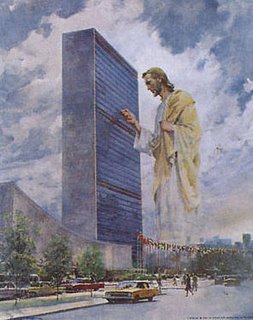http://www.news.va/en/news/pope-francis-urbi-et-orbi-message
Pope Francis highlighted the persecution of Christians in the world as well as the many wars today in his address to the city and to the world.
Pray to the Prince of Peace, today, for a world shattered by hated, ignoring the Lord of Lords.
In this snippet, the Pope refers to the facade of peace.
True peace is not a balance of opposing forces. It is not a lovely “façade” which conceals conflicts and divisions. Peace calls for daily commitment, starting from God’s gift, from the grace which he has given us in Jesus Christ.
This facade starts with the personal, with the individual soul. One must forgive and truly love those who hate.
Loving the enemy is not merely an intellectual process of forgiving, but it is turning to the will in order to will to love.
The daily commitment for peace among nations will not occur if people are not peaceful in their own lives.
I find it interesting that while the Pope pleads for peace in the world, the world leaders are silent, on vacation, concentrating on their own countries or on themselves.
The leaders of this world, except for the Pope, ignore suffering, especially the suffering of Christians.
But, so too, the people of Bethlehem ignored the suffering of one small family forced into a cave with animals for the Birth of the Lord, the Messiah, the King.
This year has proved to be a year of violence for many across the world, and in other situations. As you all know, three peace-keepers in South Sudan were killed five days ago. Those who seek peace of any kind, whether political or spiritual, are targets.
But, we all have grace, tremendous grace. Grace leads us to love while surrounded by hate. Can we say "yes" to this challenge today?
Can we learn to find that peace within in order to create peace without? Remember, peace must be based on following Christ and not on ideologies. Without Christ, there is no true peace.
Pope Francis highlighted the persecution of Christians in the world as well as the many wars today in his address to the city and to the world.
Pray to the Prince of Peace, today, for a world shattered by hated, ignoring the Lord of Lords.
In this snippet, the Pope refers to the facade of peace.
 |
| The Prince of Peace by Harry Anderson |
This facade starts with the personal, with the individual soul. One must forgive and truly love those who hate.
Loving the enemy is not merely an intellectual process of forgiving, but it is turning to the will in order to will to love.
The daily commitment for peace among nations will not occur if people are not peaceful in their own lives.
I find it interesting that while the Pope pleads for peace in the world, the world leaders are silent, on vacation, concentrating on their own countries or on themselves.
If the world hates you, you know that it hated me before it hated you.
John 15:18
The leaders of this world, except for the Pope, ignore suffering, especially the suffering of Christians.
But, so too, the people of Bethlehem ignored the suffering of one small family forced into a cave with animals for the Birth of the Lord, the Messiah, the King.
This year has proved to be a year of violence for many across the world, and in other situations. As you all know, three peace-keepers in South Sudan were killed five days ago. Those who seek peace of any kind, whether political or spiritual, are targets.
Remember the word that I said to you, The servant is not greater than his lord. If they have persecuted me, they will also persecute you; if they have kept my saying, they will keep yours also.
John 15:20
But, we all have grace, tremendous grace. Grace leads us to love while surrounded by hate. Can we say "yes" to this challenge today?
Can we learn to find that peace within in order to create peace without? Remember, peace must be based on following Christ and not on ideologies. Without Christ, there is no true peace.